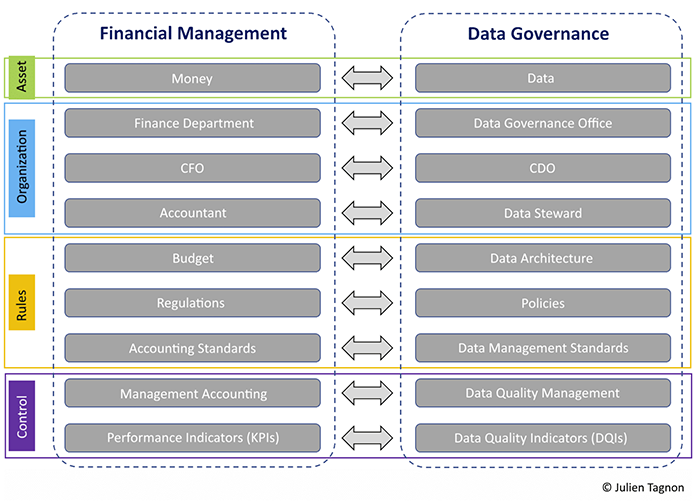Data Governance: obtaining sustainable results
Placed high on the transformation agenda is of course the set-up of proper data governance, a prerequisite for managing data as an asset, i.e. as a source revenue. However, even when the resource requirements for such governance is fully understood, data governance implementation is too often approached like a simple project.
In so doing, and by only focusing on the transformative steps, organizations jeopardise investments made (which are sometimes quite substantial). And also lose sight of a key element of the whole transformation process: ensuring the sustainability of its results.
We could ponder on the reasons for which this usually happens, but it is highly likely that causes are context-specific. What this does indicate though is a general lack of understanding of the implications of data governance implementation. Even though most organizations recognise that digital transformation is necessary to better manage data, they often struggle with grasping the full organizational impacts of managing data as an asset.
This is quite surprising since the majority of companies have a solid understanding, through the management of their finances, of what it takes to properly manage an asset. And the fact that the elements required to manage finances are very similar to those needed to manage data makes it all the more surprising.






